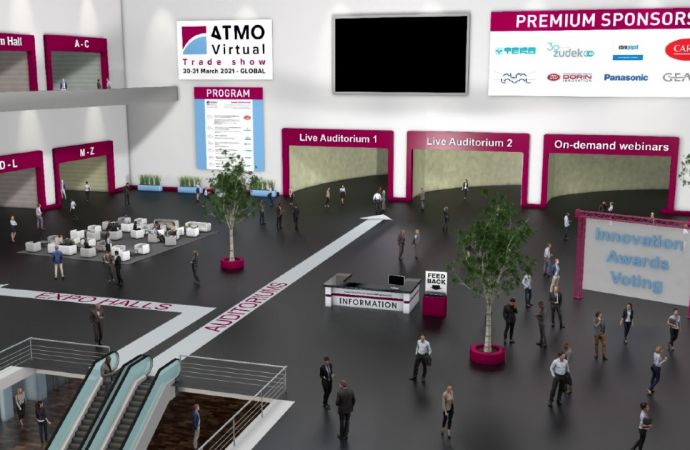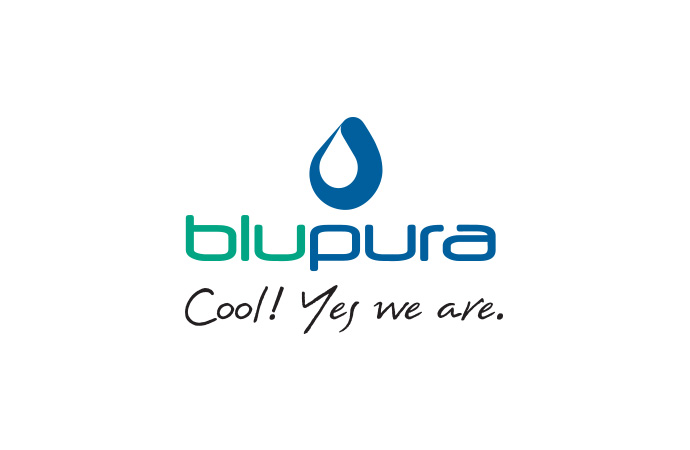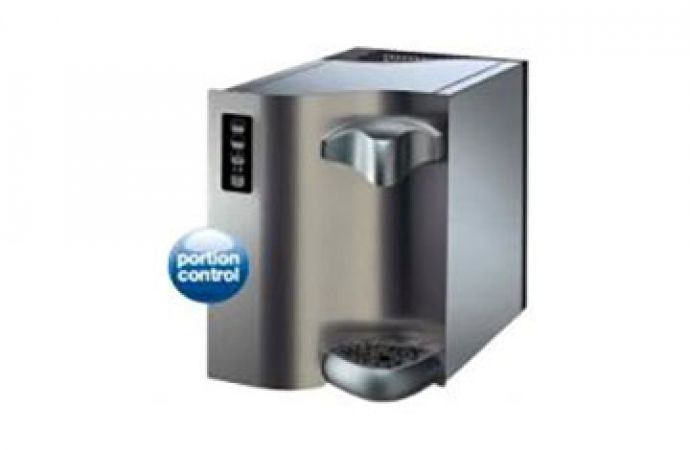In this third and final installment from the NAFEM Show, hydrocarbons21.com reports on three companies - Beverage-Air and Blupura/ELKAY - at different stages of bringing propane refrigeration systems to the U.S. market. Beverage-Air is close to having propane systems in the U.S. market and Blupura is trying to get EPA approval to bring in its propane units from Europe, while its U.S. distributor ELKAY is still at the R&D stage. +PHOTOS

Grappling with the EPA
Italian water-cooler maker Blupura markets propane still- and sparkling-water units to restaurants in Europe and has customers for them in the U.S. But the EPA has yet to approve propane water coolers for the U.S. market so Blupura’s hands are tied for the moment, explained Luca Costantini, sales director.
“It’s a bureaucratic process,” he said. “We’re debating what to do.” As a smaller manufacturer, he would prefer that a larger company take the lead on gaining EPA approval.
His U.S. distributor, ELKAY, which also makes its own pressure-cooler drinking fountains, has just begun assessing which natural refrigerant it plans to use in lieu of R134A, said Franco Savoni, product director, water cool.
Beverage-Air begins shipping next month
Beverage-Air is very close to producing its first propane refrigerators and shipping the first models to U.S. foodservice customers next month, said John Tinney, senior refrigeration engineer.
The company displayed its Horizon series commercial refrigerators/freezers, which, Tinney said, will be among the first units transitioning from R134a or R404A to propane. Ultimately all models will make that transition.
“One customer told us they are going to come to a point where they will not accept anything but R290,” said Tinney.
For some models, Tinney explained, Beverage-Air only needed to swap out the compressor and expansion device to convert to propane refrigeration. The company also removed some electrical devices such as light switches that could create an ignition source. But condenser and evaporator coils have not been altered, though changes that would improve efficiency are on the agenda. All models are Energy Star 3.0-certified.
For Tinney, propane is a better choice for the company’s refrigerators and freezers than carbon dioxide. “If I can use the same system I’ve got with just a different compressor, and I can use mineral oil, why mess around with CO2?”
Tinney believes the EPA will eventually increase the charge limit on propane so that it can be used in larger units. As for propane’s flammability, “the most dangerous part is to the manufacturer who has to follow proper safety guidelines. And the service guy has to be aware. He can’t take out a torch and start brazing something.”
MORE INFORMATION
Related stories





